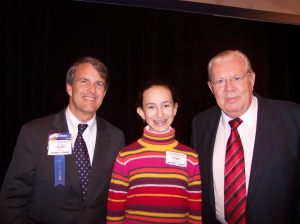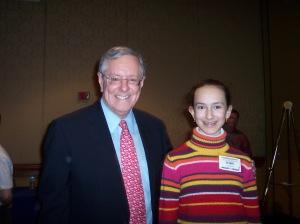 I write about bank regulation for S&P Global Market Intelligence.
I write about bank regulation for S&P Global Market Intelligence.
Previously, I covered insurance regulation and policy for CQ Roll Call, including state insurance regulators’ actions and congressional debate on federal insurance issues such as the National Flood Insurance Program.
Before CQ Roll Call, as a federal tax and data reporter at Tax Notes Today, I wrote data-driven stories, mostly using IRS Statistics of Income data releases. I analyzed the data and interviewed sources – tax law professors, think tank researchers and/or tax law practitioners – about trends in the data and related issues, such as how impacts of tax policy changes might show in the data.
Before Tax Notes Today, I did reporting and conducted data analysis as a key member of a small Capital News Service business reporting team investigating nursing homes in Maryland. Our series, “Discharging Trouble,” was a finalist for an IRE award and winner of two first place MDDC Press Association awards, in the investigative reporting and public service categories. Subsequent to our investigation, Maryland Attorney General Brian Frosh filed a lawsuit against the company we profiled in our series. In the suit, he cited the company’s discharge practices (the focus of our investigation). In October 2018, the state required the nursing home operator to pay a $2.2 million settlement, and the company is no longer allowed to operate nursing facilities in Maryland.
I have considered myself a storyteller since I was very young. And when I was 8, I started writing and performing my adaptations of folktales at local libraries and folk festivals. I am a performing member of Voices in the Glen, a D.C.-area storytelling guild. I also have volunteered as a Certified Facilitator of TimeSlips, a storytelling activity for people with cognitive disabilities, such as Alzheimer’s or dementia. My life revolves around stories.
I’d like to tell you the story of how I realized I wanted to be a business journalist.
I have been interested in money and business since I was a child. “Buy low and sell high!” is what my father trained me to say as soon as I could talk. Then he taught me, “Buy high and sell higher,” and, “Sell high and then buy low.” I have been fascinated by the markets, the law of supply and demand, the theory of behavioral finance, the economy and money management all my life. Growing up, a day felt incomplete if I did not hear and discuss the day’s business news.
So I jumped at the opportunity to attend the Money Show on Nov. 6, 2008. News affecting the U.S. economy had been breaking frequently: Bear Stearns was bailed out eight months before, Lehman Brothers collapsed less than two months before, Warren Buffett had just written an op-ed piece in The New York Times three weeks before saying stock prices were low enough that he was buying, the stock market hit a five year low a week and a half before and Barack Obama was elected president two days before.
As I walked into the meeting room, I remember seeing Paul Kangas sitting at the front, almost like when he was at the anchor desk on “Nightly Business Report.” I walked all the way to the front and took a seat directly in front of the podium. I was a little star struck, but I went up to Kangas and told him that I had watched his show almost every night of my life, and I showed him the notebook where I took extensive notes on the stock quotes and the news.
Then I met Charles Githler, founder of the Money Show, who later pointed me out in his opening speech as the youngest attendee ever.
I listened from the edge of my seat, completely captivated by the discussion of the current economy. Knight Kiplinger explained, “‘Worst since’ [the Great Depression] does not mean ‘as bad as’.” Steve Forbes said, “Even the price of mud went up.” Tony Blankley predicted, “We will experience a period of confusion.” Forbes warned, “They didn’t even know they had this stuff. You might go home and find a subprime mortgage under your bed!” Afterward, I introduced myself to Forbes, and he encouraged my interest in business.
I left the Money Show aspiring to be a journalist covering business and the economy.
All content on this website, unless otherwise stated — copyright 2016 by Zoe Lenore Sagalow

